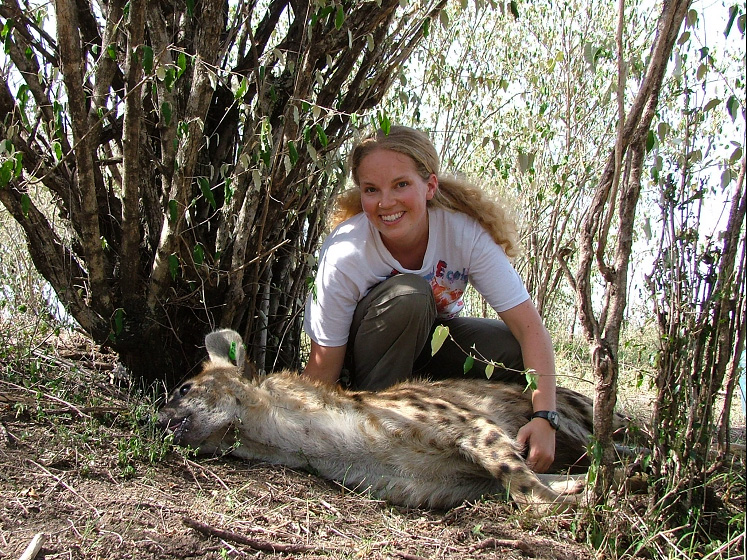Jennifer Smith, Assistant Professor of Biology at Mills College, will be taking over classes for John Harris, Professor of Biology, when he retires at the end of this semester.

Smith has plenty of experience, having worked on several research projects, and she is interested in the evolution of social behavior, Harris said.
Smith said she is driven by the opportunity to train and advance women in the sciences.
“I am deeply committed to advancing women in the sciences because women continue to be underrepresented in the sciences,” Smith said.
According to Lisa Urry, Professor of Biology, Smith was one of about 130 applicants in the nation-wide search Mills conducted to fill John Harris’ Ecology faculty position. When Smith came to Mills for her campus visit and interview, students and faculty loved her pedagogical approach, her expertise, and her enthusiasm, Urry said.
“Jenn’s teaching and research experience was unique, and her application moved her to the top pool among our applicants,” Urry said. “She is an advocate for women in science, and a great role model for students.”
Smith’s approach to mentorship is very hands-on. She assists her mentees with professional development and guided fieldwork, allowing them to gain experience in an active learning environment, which is key to retaining women in the sciences, Smith said.
The Jill Barrett Biology Research Program, initiated in 1998, helps fund students to continue research in the sciences at Mills; students in the program work closely with faculty in the Biology department. The program is funded by Richard and Elaine Barrett in memory of their daughter Jill, who attended Mills in 1993.
The Barrett Program supports students by providing scholarships, including paid stipends, to students accepted into a 10 week long summer research project guided by a faculty member from the Biology Department. Students prepare for their summer project by doing year-long research with individual faculty members to prepare for the project, according to the Mills website.
Smith currently has four students in the Barrett program, with nine students total that she mentors in professional development and various researches.
“Students can get credit for their research to count towards their degree, but the main goal is professional development and sampling success in the sciences,” Smith said.
One student from Smith’s Marine Biology class, also a Barrett Fellow, Kate Lee Newcomb, said she became interested in working with Smith because she works with animals in the field.
“Her Marine Biology class has exciting field trips that show the practical applications of the field,” Newcomb said.
Valeska Munoz, another mentee of Smith and a Barrett Fellow, said having Smith as a professor is an amazing privilege.
“It’s spectacular how much time and energy Professor Smith invests in her students and classes, though we know she has additional research to do and articles to write,” Munoz said. “She’s definitely a professor I can say made a difference in how I think of myself as a women in science.”
John Harris, who has been teaching at Mills for the past 27 years, feels that Smith is the right choice to replace him.
“I think that Jenn is a fantastic addition to our faculty and community,” Harris said. “We are very lucky to have found her.”
As assistant professor, Smith introduced a new course focused on animal behavior in the fall semester that Harris said was well-received by students and appeals not only to Biology majors but also those students focused in biopsychology and psychology.
In her new animal behavior class at Mills, Smith introduces students to fundamental principles based on recent advances in primary literature in the field.
“It’s perfect to have research that goes along with your classes, because you can read primary literature on a current theory, then go out into the field,” Smith said.
Diana Ruiz, a student of Smith’s and a Barrett Fellow, said Smith’s style of teaching is a balance of imparting years of expert knowledge and sincere interest in the advancement of her students as women in science.
“While Dr. Harris’s retirement is a tremendous loss for Mills, he could not have done the community a better service by helping us gain Professor Smith,” Ruiz said.
The group of students participating in the Barrett Program that Smith is mentoring through field research is called the Smith Lab; the group is working collectively on research projects.
One long-standing biological question Smith and her team are focusing on is why animals cooperate.
“From an evolutionary perspective, if an animal is doing something, like cooperating with a group, we hope to explain it by looking at the benefits of that behavior,” Smith said.
Students who are currently doing research in the Smith Lab are exploring animal cooperation among California ground squirrels, feral cats, and hyenas. They hope to start location research on California ground squirrels in East Bay Regional parks this spring, according to Smith.
Lauren Kong, who sought Smith out after taking her Animal Behavior class this fall, has also been accepted into the Barrett program over the summer to study California ground squirrel behavior and physiology.
“Dr. Smith is an amazing person,” said Kong. “She is understanding, caring, and quite eager to help students.”
Student research on California ground squirrels includes observation and field experiments, and study of the animals to understand their behavior. Students take their observations and field experiments to the lab and analyze hormones from their findings.
One of the goals in Smith’s research is to get all these squirrels marked so they can track them individually for many years. Setting up a long-term study will allow for students to be trained, so that they will eventually train and mentor one another.
“I think that mentoring is one of the most important ways to retain women in science,” Smith said.
